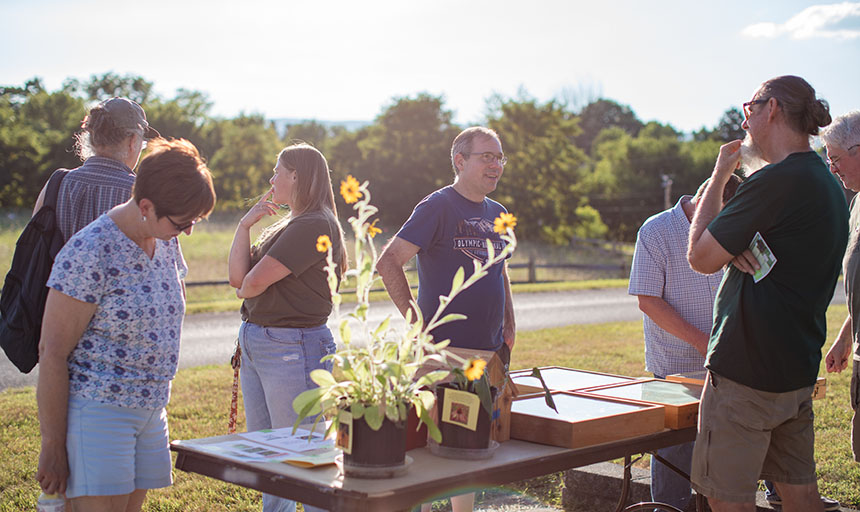
Biology Professor Rachel Collins is working with a team of student researchers to improve wildlife habitat at The Environment Center on Roanoke’s Elizabeth Campus. Their work has resulted in a five-acre space of meadow and woodlot populated with an assortment of wildlife including birds, bats, bees.
One student researcher, Nicholas Cook ’26, is focusing his research on bats. He and Collins deployed a “bat detector” this summer to record the sound of ultrasonic bat calls. The sophisticated technology, called a Song Meter Mini Bat, can identify a bat's species and help the team learn more about the bats visiting the property.
“Bats provide a great service,” said Cook, a biology major, leader in the environmental service fraternity AKX and member of the wrestling team. “They get rid of bugs and insects and overall help with the food chain, so it’s important that we promote bats.”
The data will help Cook begin building a database of the number and type of bats that live or visit the college-owned wildlife habitat. It's the first step in a project to assess the diversity of bat species feeding at The Environment Center at different times of year.
The research team is doing more than tracking bats – they are creating a sustainable environment to better support the bats. Restoring the meadow with native plants increases the diversity and abundance of insects which, in turn, improves the foraging habitat for bats. The addition of bat houses provides roosting habitat that could be used for hibernation or for female bats to establish maternity colonies. The bat detector helps the team study whether these habitat restoration efforts bring more bat species, including rare and endangered bats, to The Environment Center.
Collins’ work with the environmental researchers was recently recognized with a grant from the National Wildlife Federation and Mutual of Omaha’s Wild Kingdom College and University Grant Program. Roanoke College was one of seven schools across the country to receive a grant to support improving wildlife habitat on college campuses.
“I was so jazzed when I heard we were awarded this grant. There are multiple benefits. The meadow restoration work provides food resources for these species, and the bat, owl and bee houses add the missing piece -- a safe place for roosting and reproducing."
Biology Professor Rachel Collins
The multi-part grant is funding the installation of bat houses, owl nesting boxes and bee houses at The Environment Center. The center also hosted a June 27 education event that invited families to get an up-close look at suburban habitat restoration and the wildlife it benefits.
“I was so jazzed when I heard we were awarded this grant,” Collins said. “There are multiple benefits. The meadow restoration work provides food resources for these species, and the bat, owl and bee houses add the missing piece -- a safe place for roosting and reproducing."
“This work also provides real-world learning experiences for Nick and other students on how to do habitat restoration. Finally, The Environment Center is a showplace where the community can come and learn about the value of wildlife diversity in a suburban community and how they can promote wildlife in their own yards.”
Collins and her student research team hope the new bat houses will attract big brown bats, little brown bats, which are less common, and northern long-eared bats, which are federally listed as endangered.
This summer, student researchers are also installing nesting houses for owls and solitary bees.
Eastern screen owls and mason bees are among the other diverse species that will benefit from the habitat upgrades. Creating safe havens with nesting boxes and houses addresses a missing component of the habitat requirements for these vital animals.
Much like bats, owls and bees contribute to pest management and healthy ecosystem pollination. Strengthening their numbers ensures a vibrant environment for both the Elizabeth Campus and its surrounding neighborhoods.
As part of the grant recognition, Collins and her student researchers met virtually with the hosts of Mutual of Omaha’s “Wild Kingdom” TV show, Peter Gros and Rae Wynn-Grant.
“I was impressed by their interest in mentoring the students on the call,” Collins said. “Nick asked advice about how to pick a career in wildlife conservation and Dr. Wynn-Grant gave him a thoughtful answer about following your passion and ignoring ‘naysayers.’”
The research team's work and photo were featured on the National Wildlife Federation's website.
National Wildlife Federation and Mutual of Omaha's Wild Kingdom grant
Photos by Carissa Divant.
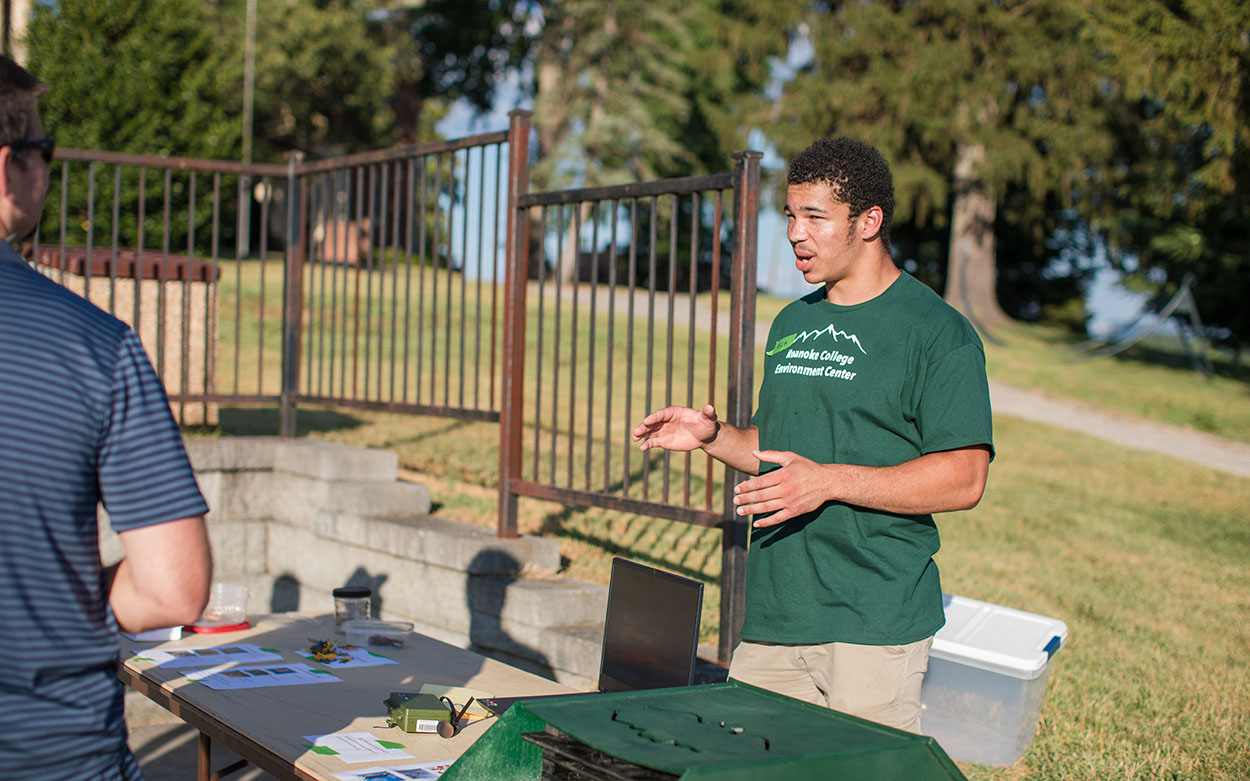
Nick Cook speaks about bat research at the Suburban Wild event.
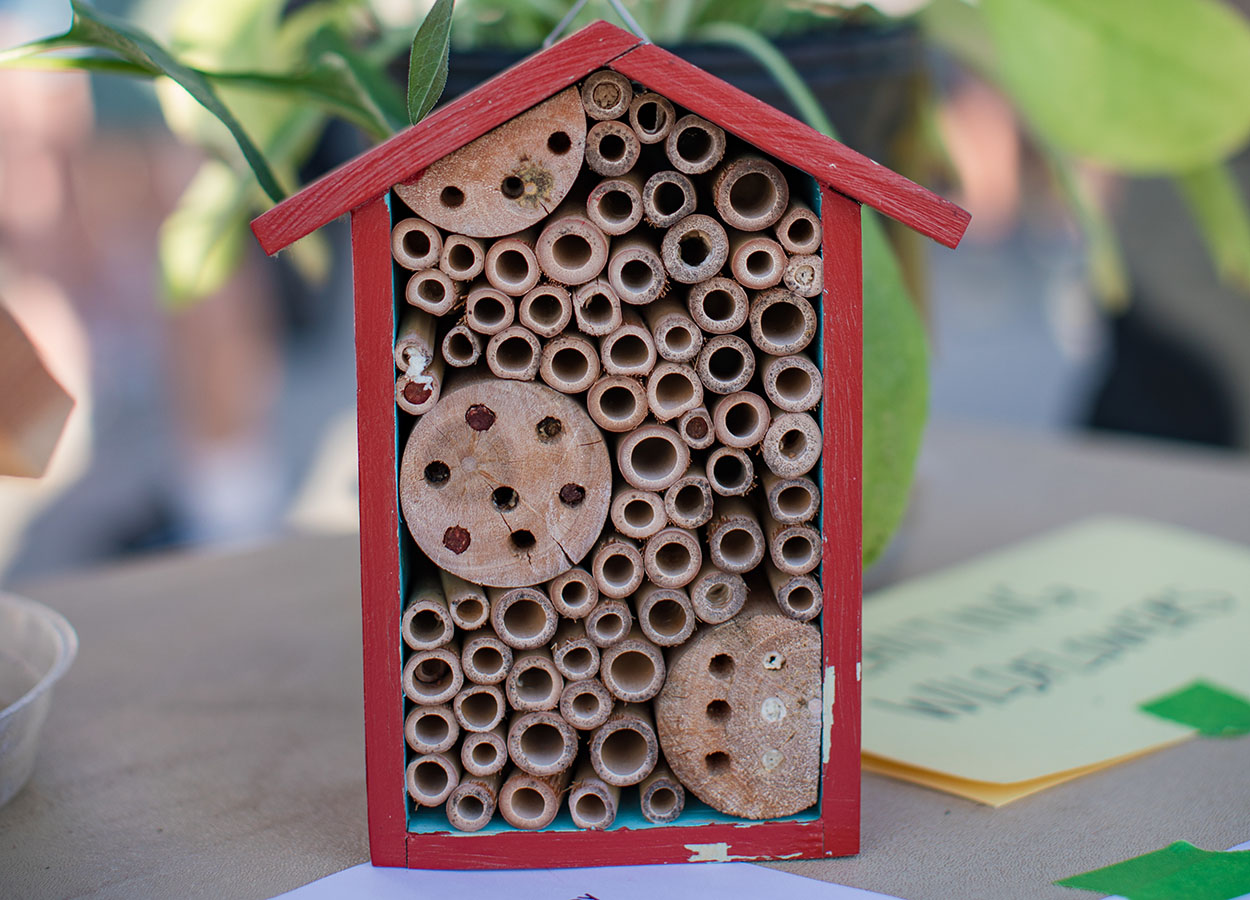
A solitary bee house, which was one of the door prizes at Suburban Wild.
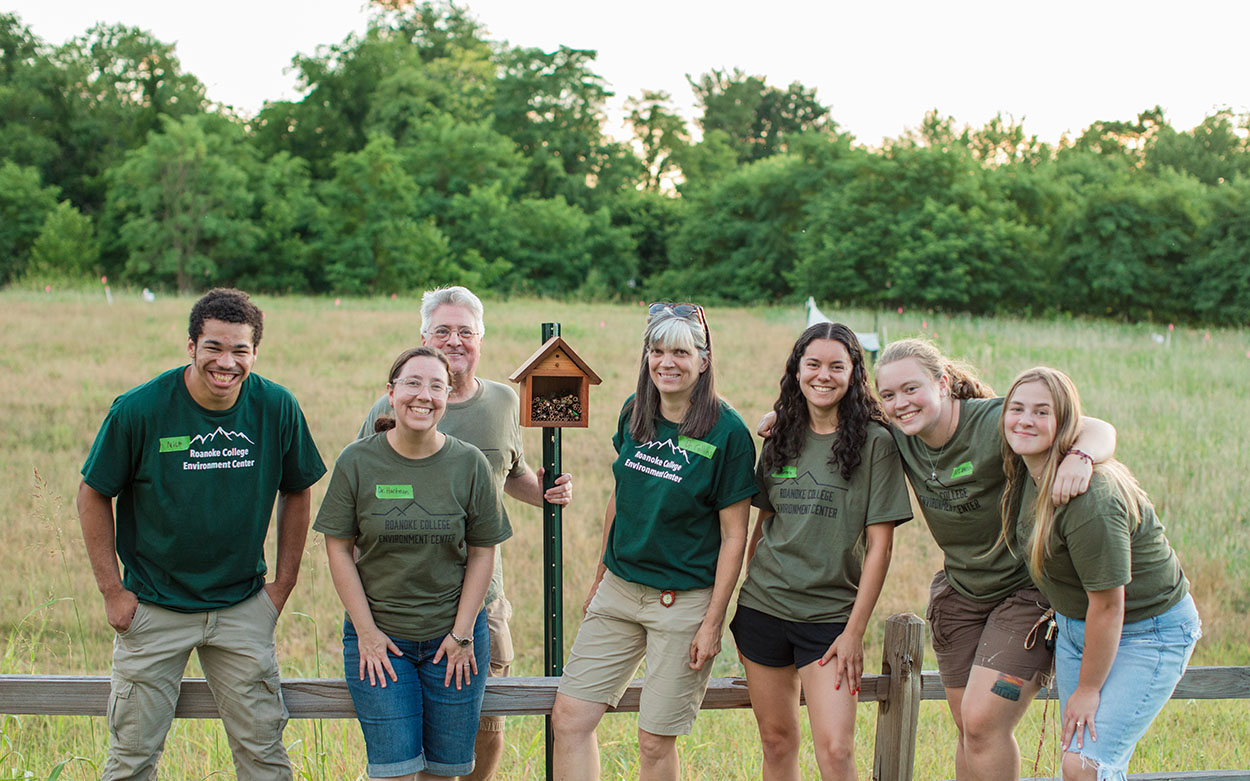
The Environment Center crew of faculty and student researchers.
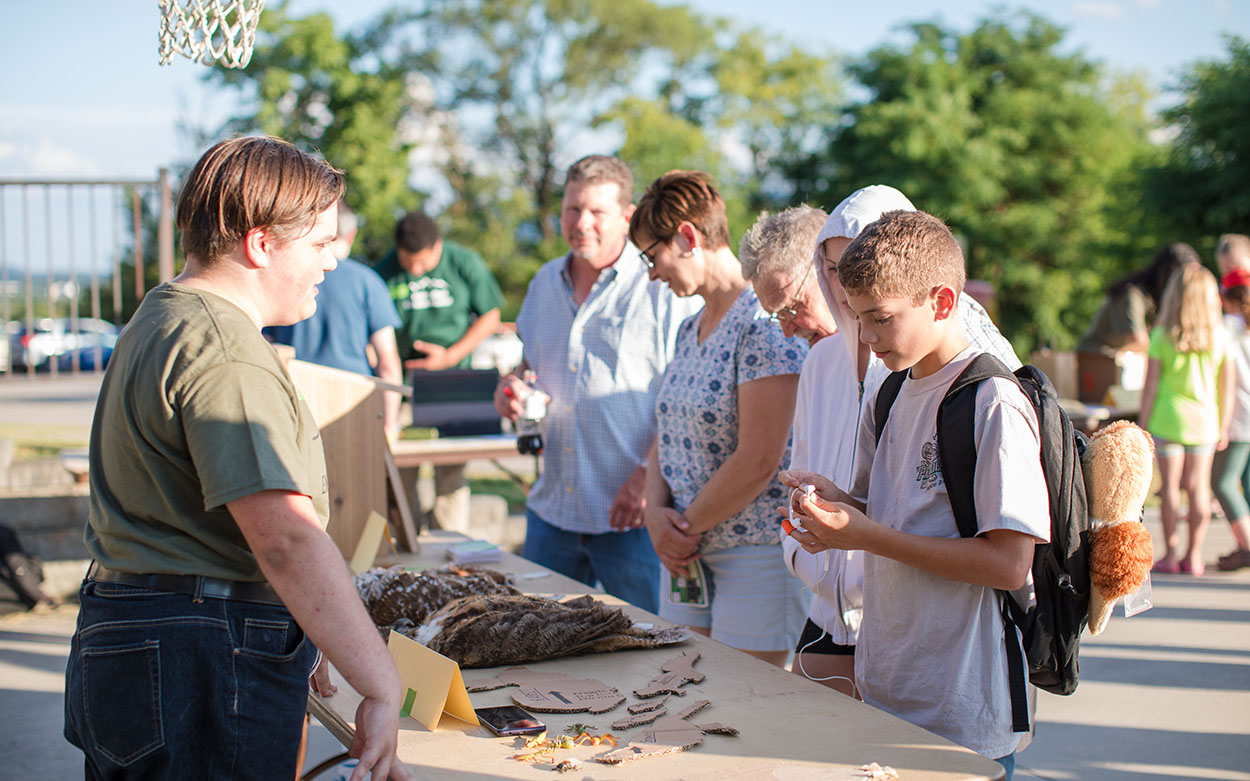
A student talks to participants at Suburban Wild event.
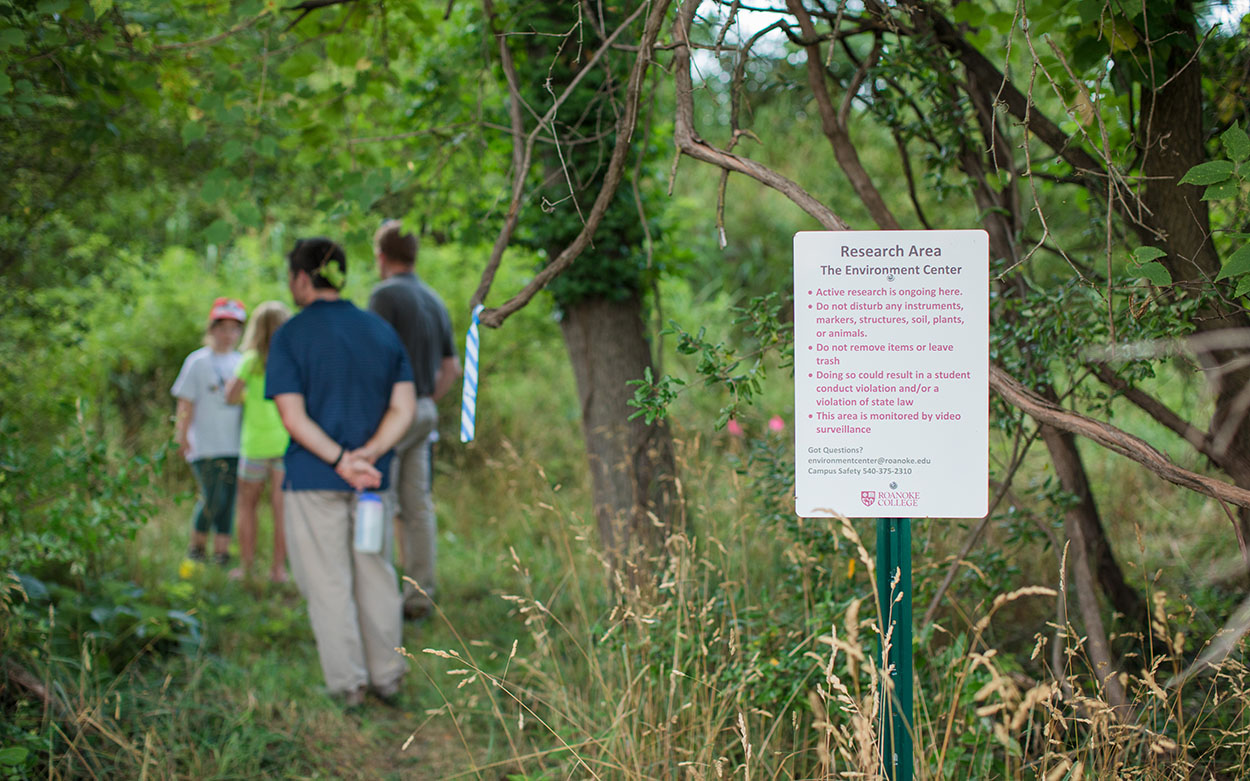
Participants walk in the woods at Suburban Wild event.
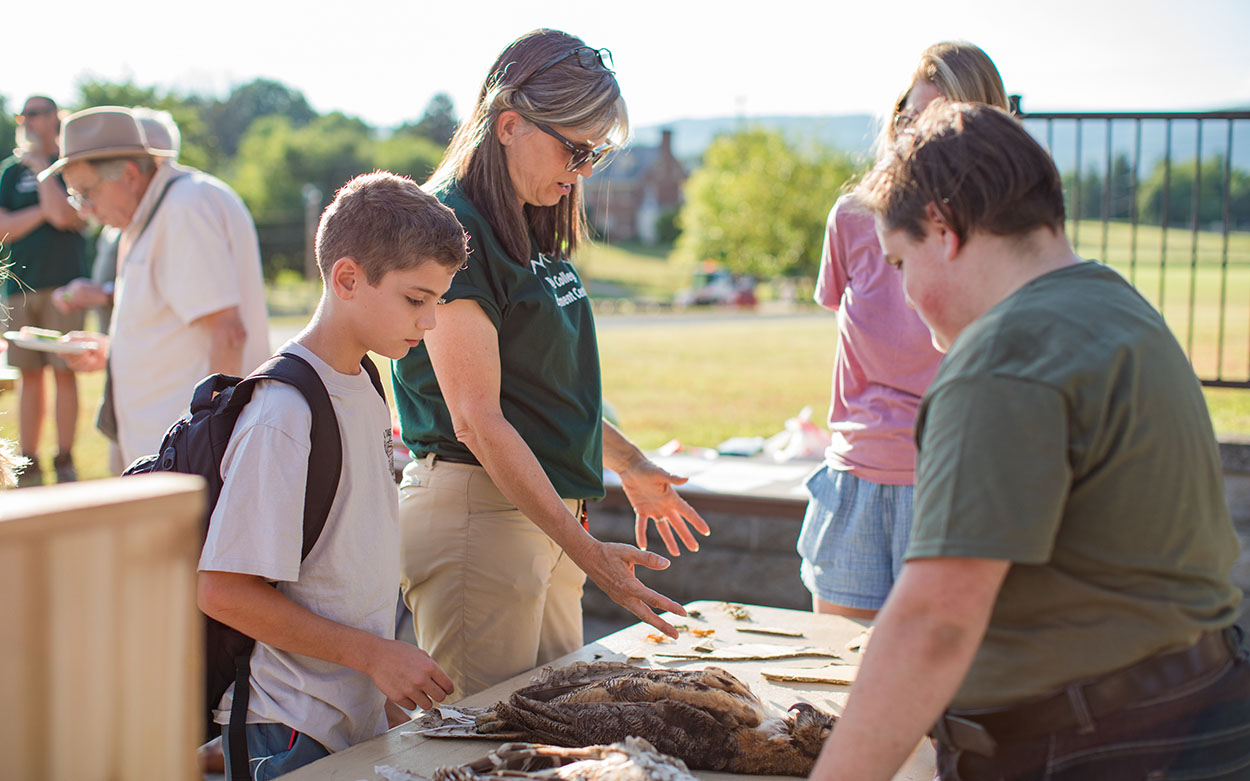
A young student participant speaks to Roanoke student about owls at the Suburban Wild event.

Watermelon and advocacy information at the Suburban Wild event.